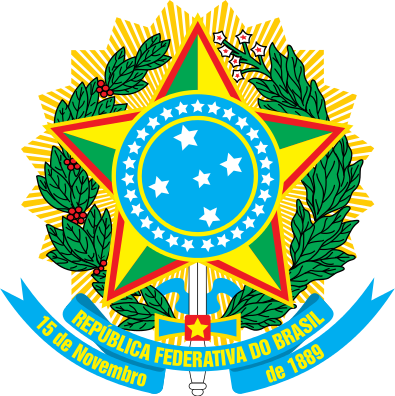Location
Following more than three centuries under Portuguese rule, Brazil gained its independence in 1822, maintaining a monarchical system of government until the abolition of slavery in 1888 and the subsequent proclamation of a republic by the military in 1889. Brazilian coffee exporters politically dominated the country until populist leader Getulio VARGAS rose to power in 1930. By far the largest and most populous country in South America, Brazil underwent more than a half century of populist and military government until 1985, when the military regime peacefully ceded power to civilian rulers. Brazil continues to pursue industrial and agricultural growth and development of its interior. Having successfully weathered a period of global financial difficulty in the late 20th century, Brazil was seen as one of the world’s strongest emerging markets and a contributor to global growth. The awarding of the 2014 FIFA World Cup and 2016 Summer Olympic Games, the first ever to be held in South America, was seen as symbolic of the country’s rise. However, since about 2013, Brazil has been plagued by a shrinking economy, growing unemployment, and rising inflation. Political scandal resulted in the impeachment of President Dilma ROUSSEFF in May 2016, a conviction that was upheld by the Senate in August 2016; her vice president, Michel TEMER, will serve as president until 2018, completing her second term.
Brazil is a federal presidential republic.
Source: CIA World Factbook
Members:
Resources
Displaying 176 - 180 of 180Decree No. 97.717 creating the protected area of "Alcobaça", within the State of Rio de Janeiro.
This Decree creates the protected area of "Alcobaça", within the Municipality of Petrópolis, State of Rio de Janeiro. It consists of 4 articles establishing the aforesaid protected area aimed to the preservation of water springs, the reduction of soil erosion and the protection of flora e fauna of the above-mentioned territory. Geographical limits and coordinates are specified in the text.
Decree of 11 December 1998 approving administrative limits of 'Kambiwá' native people lands, within the State of Pernambuco.
This Decree approves administrative limits of 'Kambiwá' native people lands, within the Municipalities of: 'Ibimirim', 'Foresta' and 'Inajá', State of Pernambuco. It consists of 2 articles specifying the geographical limits and coordinates of the aforementioned native people land.
Decree of 11 December 1998 approving administrative limits of 'Massaco' native people lands, within the State of Rondônia.
This Decree approves administrative limits of 'Massaco' native people land, within the Municipalities of 'Costa Marques' and 'Alta Floresta D'Oeste', State of Rondônia. It consists of 3 articles specifying the geographical limits and coordinates of the aforementioned native people land.
Decree No. 8.468 regulating Law No. 997 on environmental pollution control.
This Decree approves the Regulation on environmental pollution control established by Law No. 997 of 31 May 1976. The Regulation consists of 7 Parts and 8 Annexes specifying in details all the requirements and conditions to be satisfied by industries, or any other activity which may contaminate the environment in order to prevent and control water, soil and air pollution. Part I establishes general provisions (including definition of prohibited activities and restrictions to be observed). Part II concerns water pollution, specifying water classification and standards to be satisfied.
Act No. 8.629 regulating rural land property in compliance with the Agrarian Reform.
This Act regulates rural land property in compliance with Agicultural Reform. It consists of 28 articles establishing the requirements to be satisfied by rural lands in order to be exploited or not, according to chapter III, title VII, of the Federal Constitution. It also defines different use of 'rural lands' for activity concerning agriculture, forestry, sylvo-pastoralism, stockbreeding, etc. and prohibits land exploitation when they are protected areas.


